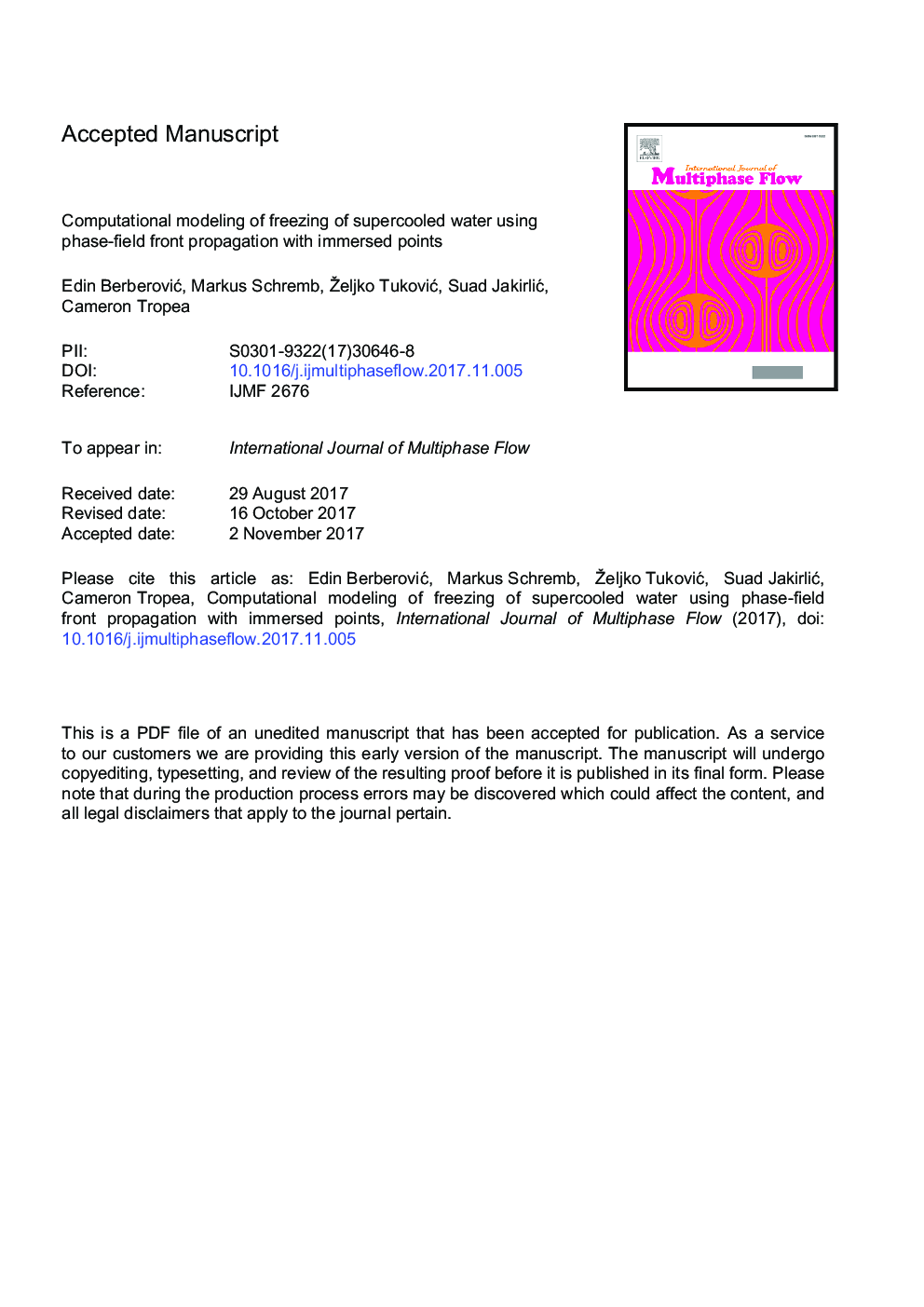| Article ID | Journal | Published Year | Pages | File Type |
|---|---|---|---|---|
| 7060194 | International Journal of Multiphase Flow | 2018 | 23 Pages |
Abstract
Computational modeling of phase change due to solidification, besides correctly capturing the heat transfer, requires accurate evaluation of mass transfer at the phase-interface. In the present study a framework is developed for modeling the solidification of supercooled water using a phase-field approach for the propagation of the interface between ice and supercooled water. Energy equations in the solid and liquid phases are decoupled at the interface by using immersed points to impose the melting temperature as a moving boundary condition. The propagation of the interface is determined by the local energy balance across the interface, which is accounted for in the reconstructed interface points. The model is validated using the known theoretical solutions for the two-phase Stefan problem. An extension of the model to incorporate conjugate heat transfer with a neighboring solid wall is presented, establishing a framework that can be used for further modeling of the interaction of solidifying supercooled water on a solid substrate.
Related Topics
Physical Sciences and Engineering
Chemical Engineering
Fluid Flow and Transfer Processes
Authors
Edin BerberoviÄ, Markus Schremb, Željko TukoviÄ, Suad JakirliÄ, Cameron Tropea,
